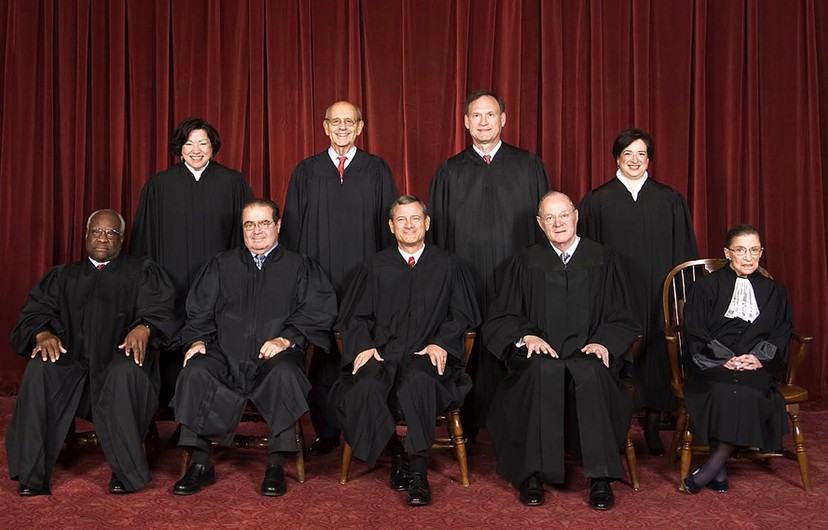Friday February 21, 2014
'Live from D.C., It's ... '

Supreme Court Anonymous.
In the middle of “Clarence Thomas' Disgraceful Silence,” a New Yorker article celebrating eight years of nothing from one of our sitting justices, which includes a good primer on who speaks up when and how during oral arguments, author Jeffrey Toobin adds this throwaway thought:
The Courtís arguments are not televised (though they should be), but they are public. They are, in fact, the publicís only windows onto the Justicesí thought processes ...
As soon as I read it, I thought, “Hey. Why don't they televise hearings? I mean, wouldn't that be cool?”
Cool for me anyway.
Think of it. It would make the whole process less mysterious. It would open things up. It would make the court's decisions accessible to more Americans. What's the argument against besides tradition? Besides the notion that the television screen reduces everything? That lawyers, not to mention justices, might play for the cameras rather than to history?
Guess what? There's an entire Wiki pages on the subject. I'm late to the party.
Here are the arguments against televising SCOTUS hearings, with comments from me:
- Requiring the proceedings ... to be televised is a threat to judicial independence and, thus, the separation of powers. I don't get this argument. How is it a threat? To either one?
- Justice Anthony Kennedy ... argues that the measure would not align with the “etiquette” and “deference” that should “apply between branches.” Why? Are the justices indelicate during arguments? And aren't the other branches already on television? So wouldn't this ... balance things?
- Furthermore, some justices believe televising the proceedings would change the way they act in the courtroom. This is an understandable reaction. I wouldn't want to be televised at my job, for example. But I'm not making new law every day, either. It's not what you want; it's what the country needs.
- Justice Clarence Thomas also contends that televising Court proceedings would reduce the level of anonymity that justices now have and could raise security concerns. Is this is an argument against taking photos, too? Because we do that. And it's not like the Court will be a ratings bonanza. It'll be CSPAN for lawyers rather than ... say ... the Thomas confirmation hearing.
- Opponents also believe that television coverage would also take away from the mystery of the court and cause the public to misinterpret the Court and its processes. I get this argument least of all. Less mystery equals ... more misinterpretation? They don't think much of us, do they?
Thoughts? Anyone? Bueller?
Baseball's Active Leaders, 2023
What Trump Said When About COVID
Recent Reviews
Everything Everywhere All at Once (2022)
Black Panther: Wakanda Forever (2022)
Doctor Strange in the Multiverse of Madness (2022)
Spider-Man: No Way Home (2021)
The Cagneys
A Midsummer Night's Dream (1935)
Something to Sing About (1937)
Angels with Dirty Faces (1938)
A Lion Is In the Streets (1953)
Man of a Thousand Faces (1957)
Never Steal Anything Small (1959)
Shake Hands With the Devil (1959)







